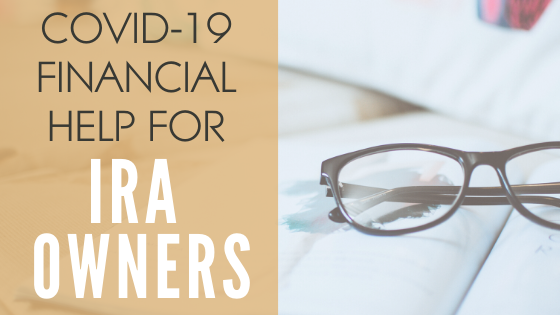If you own an IRA...
...and have been adversely affected by the COVID-19 pandemic, you are likely eligible to take tax-favored distributions (CVDs) from your IRA.
If you are eligible, you can borrow up to $100,000 from your IRA and repay the amount at any time up to 3 years later with no federal income tax consequences.
There aren't any income limits on this distribution privilege, and there are no restrictions on how you can use this money during the 3-year time period.
How does it work?
If you qualify, you can take one or more distributions up to the $100,000 limit. It can come from just one IRA account, or multiple. The 3-year due date in which you need to repay the distributions starts the day you receive the money.
As long as you repay the entire amount within 3 years, the transactions are treated as tax-free IRA rollovers.
If you qualify, the CVDs need to be made between January 2nd, 2020 and December 31, 2020.
What about the penalty tax?
If you are under the age of 59 1/2, the penalty tax that usually applies does NOT apply to these specific CVDs.
You qualify if you have one of the following situations:
-You are diagnosed with COVID-19 by a test approved by the Centers for Disease Control and Prevention, or
-Your spouse or dependent is diagnosed by such a test, or
-You experience adverse financial consequences as a result of being quarantined, furloughed, laid off, or forced to reduce work hours due to COVID-19, or
-You are unable to work because of lack of child care due to COVID-19 and experience adverse financial consequences as a result, or
-You own a business that has closed or have had operating hours reduced because of COVID-19 and experience adverse financial consequences as a result, or
-You experienced adverse financial consequences due to other COVID-19 related factors to be specified in the future IRS guidance.
What happens if you don't repay your distribution within 3 years?
You will owe income tax on the amount that you don't repay within the 3 years. However, you will not have to worry about owing the usual 10% early withdrawal penalty tax if you are under the age of 59 1/2.
